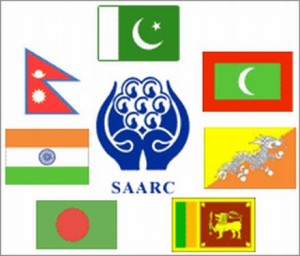In this blog post, Prajoy Dutta, a Third Year student of B.A. LLB(HONS) from Institute of Law, Nirma University, Ahmedabad and a Diploma in Entrepreneurship Administration and Business Laws from NUJS, Kolkata, provides structuring advice for businesses in SAARC Countries.
The growth of the startup culture in India has been nothing short of exciting, dramatic and exponential. Companies initially started up by their founders in garages and apartments are now valued at billions of dollars and stand to acquire other new-age startups to fuel their growth or be acquired by their larger competitors. As per a NASSCOM report[1] on the Indian startup ecosystem, India ranks third among all global startup ecosystems with more than 4200 new age companies.  Three to four startups are born every day with nearly five billion dollars of funding coming in 2015, and this growth is fueled by a large number of people coming on to the internet, thereby leading to a large consumer base for all these startups[2]. Remarkably, with just a month or so into 2016, around $300 million dollars have been invested into Indian startups, the most recent example being Shop clues’ funding round[3].
Three to four startups are born every day with nearly five billion dollars of funding coming in 2015, and this growth is fueled by a large number of people coming on to the internet, thereby leading to a large consumer base for all these startups[2]. Remarkably, with just a month or so into 2016, around $300 million dollars have been invested into Indian startups, the most recent example being Shop clues’ funding round[3].
Keeping in mind that a company, in order to be successful and operate to its fullest capacity would need a safe and commercially viable business environment, this article advises entrepreneurs on the best way to structure businesses in the SAARC nations.
The SAARC nations are Nepal, Bhutan, India, Pakistan, Bangladesh, Sri Lanka and Afghanistan.
Nepal[4]
The best form of structuring a company: Limited Liability Company.
Advantages:
- A Limited Liability Company can be registered in Nepal with merely one shareholder and one director, and they can be of any nationality. The minimum capital that is required for incorporation is US $1, and generally, the entire registration process can be completed within one month.

- The costs of operating a business is also low in Nepal. The average monthly salary is US $ 76, according to the World Bank. Moreover, the office space annual rent is only US $12 per square foot. Manufacturing of goods thus can be very inexpensive.
- Another factor that encourages the setting up of companies in Nepal is that the Nepal government is in the process of establishing SEZ’s which will offer some investment incentives such as
- Exemption from corporate tax.
- No duties on imports.
- No capital controls.
- Easier visa requirements for expatriate staff.
Disadvantages
- Bureaucracy and lack of transparency makes company registration in Nepal burdensome and costly.
- Doing business will be very challenging since corruption is endemic.
- Business disputes in courts take up to three years to get resolved.
Bangladesh[5]
Structuring Advice: Though a company looking to expand to Bangladesh may like to set up a branch office, which is permissible under the Bangladesh Companies Act, it isn’t a recommended business structure, since the branch offices carry an unlimited liability. Other forms of structuring include Public Limited Company [PLC] and representative office [RO]. The best form of business structure, however, is a Limited Liability Company or an LLC.
The Bangladesh LLC is the structure most preferred by entrepreneurs who wish to incorporate a business in Bangladesh. An LLC requires at least two shareholders and two directors, which can be either individuals or legal entities. A paid-up capital of US $1 is required. The company must also submit audited accounts to the Bangladesh Income Tax Authority.
Pakistan
 Structuring Advice: The best form of structure for setting up a company in Pakistan would be a Private Limited Company or a Limited Liability Company. Other forms of company structures such as a Joint Stock Company or a Representative Office do exist. However but are not recommended for entrepreneurs. A representative office cannot import or export materials, he /she can only be engaged with research and advertising, and is not allowed to sign sales contracts with Pakistani clients. One could choose to set up a branch office. However, it comes with a major disadvantage i.e. it can only be set up if the parent company has an existing contract with a Pakistani company or a Pakistani government company.[6]
Structuring Advice: The best form of structure for setting up a company in Pakistan would be a Private Limited Company or a Limited Liability Company. Other forms of company structures such as a Joint Stock Company or a Representative Office do exist. However but are not recommended for entrepreneurs. A representative office cannot import or export materials, he /she can only be engaged with research and advertising, and is not allowed to sign sales contracts with Pakistani clients. One could choose to set up a branch office. However, it comes with a major disadvantage i.e. it can only be set up if the parent company has an existing contract with a Pakistani company or a Pakistani government company.[6]
A limited liability company in Pakistan requires a low share capital of US $1000 and only two shareholders and two directors. This structure is ideal because companies can enter into any legal commercial activity without too many restrictions.[7]
Sri Lanka
Sri Lanka is ranked as South Asia’s best country for doing business by the World Bank and the 2nd least corrupt country by Transparency International.
Structuring Advice: The best form of company structure is again, the very popular Limited Liability Company. No paid up share capital is required to be paid, and the company requires a minimum of two shareholders and one director. A Sri Lankan company would require a company secretary residing in the company to complete incorporation.[8]
A branch office can also be set up by a foreign company; however, branch companies require to pay a Branch tax which is equal to 10% of all funds remitted abroad in addition to the common corporate tax that is required to be paid by all companies.[9]
Maldives
Structuring Advice: For foreigners and foreign companies that wish to incorporate a business in the Maldives, there are two options available. They can either register a company or a partnership. These companies are generally referred to as Foreign Investments and are governed in a joint manner under the Companies Act of Maldives or the Partnerships Act of Maldives and the Law on Foreign Investments in Maldives.[10]
Before incorporation, all foreign companies are required to get a foreign investment approval and sign an agreement with the Ministry of Economic Development
For areas specified in the Tourism Act of Maldives, a prior approval letter will be required from the Ministry of Tourism.[11]
Bhutan
The best form of business structure in Bhutan would be a Limited Liability Corporation.
Afghanistan
Structuring Advice: In Afghanistan, an LLC is considered as the best and most preferred manner for structuring a business. An LLC cannot have less than two or more than 50 owners, its shares cannot, however, on a public exchange, and shareholders are not authorized to transfer, exchange, or sell the company.[12] The paid up capital of a limited liability company must not be less than 100000 Afghanis.[13] The business must be registered with the Afghanistan Central Business Registry (ACBR) in the Ministry of Commerce and Industry.[14]
Other forms of company structures such as partnership firms and sole proprietorship do exist, however, they attract liability and thus are not well suited for a commercial business that wishes to grow without much hindrance.
India
Structuring Advice: The most commonly preferred form of company structure in India is, that of a Private or a Public Limited Company or a Limited Liability Company. A Private Company can be incorporated with a minimum paid up share capital of US $1650, with two directors and two shareholders[15]. A Public Company can be incorporated with a minimum paid up share capital of US $8060 and with three directors and seven shareholders. The shareholders can be of any nationality but one of the directors must be Indian.[16]
Other forms of structures such as partnerships and sole proprietorship do exist. However, they attract liability and do not allow a very easy expansion. A Limited Liability Partnership, however, is exempt from this.
[divider]
References:
[1] Anonymous, Start-up’s landscape: Young, diverse and inclusive, NASSCOM, 02/02/2016, http://www.nasscom.in/india-startup-ecosystem; see also, Anonymous, India Ranks Third in Global Startup Ecosystem: NASSCOM, The Economic Times, (Feb. 2, 2016), http://tinyurl.com/jagfzpe.
[2] Ibid.
[3]Athira Nair, Most of India’s top startups are already making a killing in 2016, YourStory, (Feb. 2, 2016), http://yourstory.com/2016/01/startup-milestones-2016/. See also: Jai Vardhan, ShopClues set to join Unicorn club, secures over $100M in Series M Round, YourStory, (Feb. 2, 2016), http://yourstory.com/2016/01/shopclues-funding-unicorn/.
[4] Nepal Company Registration, Healy Consultants, http://www.healyconsultants.com/nepal-company-registration/setup-llc/, last seen on 31.05.16 at 10.42pm
[5] Bangladesh Company Registration, Healy Consultants, http://www.healyconsultants.com/bangladesh-company-registration/setup-llc/, last seen on 31.05.16 at 10.42pm
[6] Business Entities in Pakistan, Healy Consultants, http://www.healyconsultants.com/pakistan-company-registration/setup-llc/, last seen on 28.05.16 at 10.00am
[7] Ibid.
[8] Sri Lanka Company Registration, Healy Consultants, http://www.healyconsultants.com/sri-lanka-company-registration/, last seen on 28.05.16 at 10.11am
[9] Ibid.
[10] Cost of Doing Business, Invest Maldives, http://investmaldives.org/investmaldives/strategic-investment-guide/cost-of-doing-business/, last seen on 28/05/16 at 10.25am.
[11] Ibid.
[12] A.W.H Syal, S. Abrar, M.A Noorzai, A Guide to Business Structures in Afghanistan, available at https://www-cdn.law.stanford.edu/wp-content/uploads/2015/12/A-Guide-to-Business-Structures-in-Afghanistan-AUAF-Legal-Clinic-Program.pdf, last seen on 31/05/16 at 10.18pm
[13] Ibid.
[14] Supra 12
[15] Business Entities in India, Healy Consultants, available at http://www.healyconsultants.com/india-company-registration/setup-llc/, last seen on 31/05/16 at 10.27 pm.
[16] Ibid.
 Serato DJ Crack 2025Serato DJ PRO Crack
Serato DJ Crack 2025Serato DJ PRO Crack










 Allow notifications
Allow notifications


